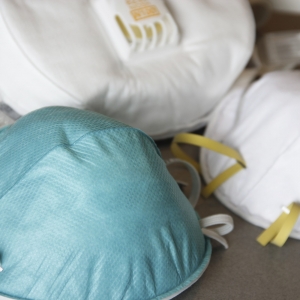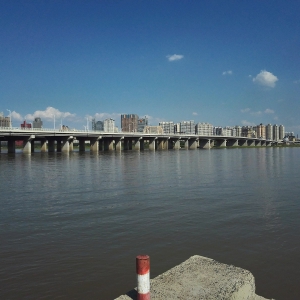The Stream, April 22, 2020: Brazil’s Most Populous Indigenous Reserve Hit by Daily Water Interruptions
The Global Rundown
Amid the coronavirus pandemic, water interruptions plague residents of Brazil’s most heavily-populated indigenous reserve. Rescuers in Kenya search for survivors after torrential rain triggered a fatal landslide. The World Food Programme warns that the Covid-19 crisis is intensifying food shortages for millions of people worldwide. A new report suggests that the number of industrial pollution violations in waterways in the midwestern United States has jumped in the past three years. Washington Governor Jay Inslee bans water and power shutoffs for the next two weeks due to the ongoing coronavirus pandemic.
“Most families do not have a reservoir to store water. How are you going to wash your hands? Families are exposed. It is a big risk. If the virus enters the community, it will be a very critical situation.” —Fernando Terena, a member of the local health council in the Dourados Indigenous Reserve, which is home to 210,000 Guarani Kaiowa people. Residents report frequent water interruptions, some of which last for days. Health experts warn that Brazil’s indigenous population is particularly vulnerable to Covid-19 due to insufficient health and water infrastructure. So far, no cases have been confirmed on the Dourados Indigenous Reserve, although Brazil’s overall caseload has surpassed 40,000. Reuters
Latest WaterNews from Circle of Blue
Covid-19 + Water: Live Blog — The volume of Covid-19 news can be overwhelming. We’ve started a live blog, updated throughout the day, to help you sort through it. It’s a library for how water, sanitation, and hygiene connect to the pandemic, both in the US and globally.
Protective Gear in Low Supply for U.S. Water Utilities — Many utilities say their stocks will run out within a week or two.
By The Numbers
265 million People who could become acutely food insecure due to the Covid-19 outbreak, according to the World Food Programme (WFP). The agency warns that the pandemic will worsen food security among populations that are already vulnerable–such as those in conflict zones, or facing climate or economic crises–as well as exposing new groups to the possibility of extreme food shortfalls. The Guardian
12 People killed by flash flooding in western Kenya over the weekend. Rescue workers are searching the area for survivors of the disaster, with 22 people reported missing as of Tuesday afternoon. The same area of Kenya was hit by severe weather and a deadly landslide five months ago. Al Jazeera
Science, Studies, and Reports
A new report by the U.S.-based Environmental Law and Policy Center found that the number of industrial water pollution cases filed by the U.S. Environmental Protection Agency (EPA) has gone down in the past three years, despite “significant noncompliance” with the Clean Water Act by many companies. The report suggests that the change could be due to less enforcement by the EPA. Chicago Tribune
On the Radar
Washington state Governor Jay Inslee issued a new order banning utilities from disconnecting water, power, and phone service to households due to nonpayment. The order, which is in effect through May 4, seeks to protect citizens from some of the short-term consequences of the coronavirus pandemic and associated unemployment. Seattle Times
In context: As Cities Suspend Shutoffs, Water Access and Hygiene at Front of Coronavirus Response
Water Shutoffs Are Suspended, But the Bills Will Still Be Due
Kayla Ritter is a recent graduate of Michigan State University, where she studied International Relations and Teaching English to Speakers of Other Languages. She is currently based in Manton, Michigan. Kayla enjoys running, writing, and traveling. Contact Kayla Ritter






Leave a Reply
Want to join the discussion?Feel free to contribute!